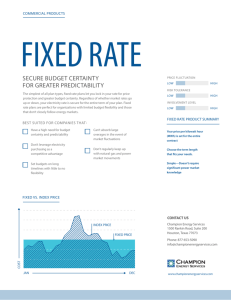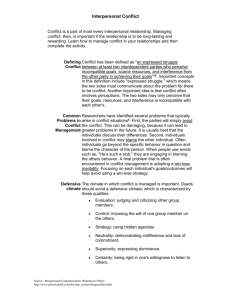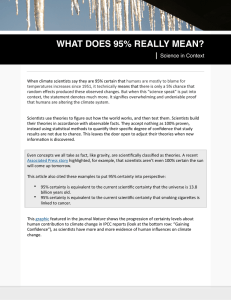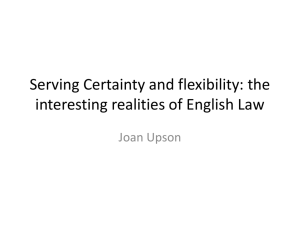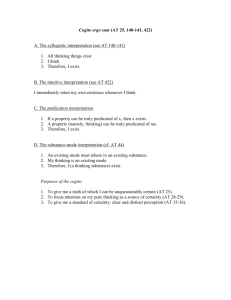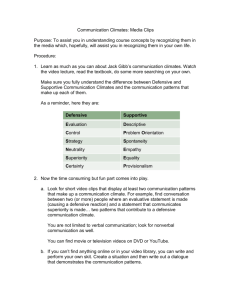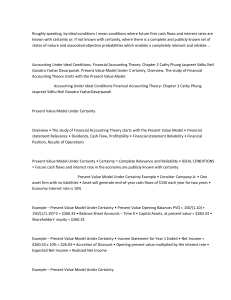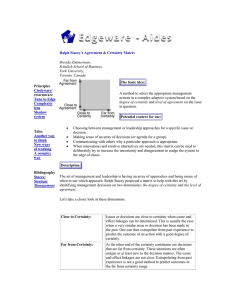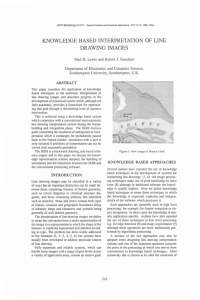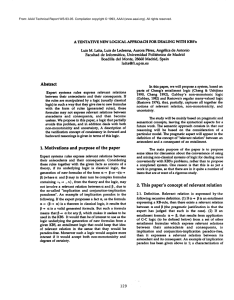Communication Climates & Interpersonal Conflict
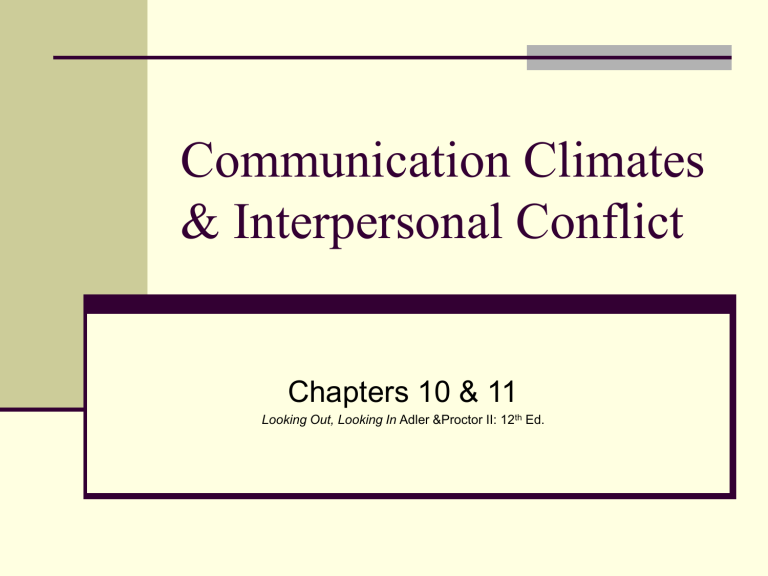
Communication Climates
& Interpersonal Conflict
Chapters 10 & 11
Looking Out, Looking In Adler &Proctor II: 12 th Ed.
George Bernard Shaw
“The worst sin towards our fellow creatures is not to hate them, but to be indifferent to them; that’s the essence of inhumanity.”
Communication Climate
Positive or negative
The climate of a relationship is shaped by the degree to which people believe themselves to be valued by one another
Confirming/disconfirming communication hand out
Communicating with Waiters p. 332
Test of character (waiter)
How do you respond
Defensiveness
S. Freud
J. Gibbs
Defense Mechanisms
Handout on Defensive mechanisms
Three defense mechanisms described broadly:
1.
Attacking
2.
Distorting Critical information
3.
Avoiding Dissonant information
Defensive & Supportive Behavior
Theorist: Jack Gibb
Table 10. 3 supportive & defensive categories
Evaluation v description
Control v problem orientation
Strategy v spontaneity
Neutrality v empathy
Superiority v equality
Certainty v professionalism
Always right?
P. 344-345
Certainty v Provisionalism
Certainty = regarding own opinions with certainty without regard/respect for ideas of others
Provisionalism = may have strong personal opinion but recognize not an expert and will adapt if presented with more reasonable information
Saving Face with Assertiveness
Avoid attacking [even if attacked first]
Express your needs & be open to others’ needs
Have the goal of reaching a mutually acceptable solution [win-win approach]
Both walk away with dignity in tact
Clear Message
1.
2.
3.
4.
5.
Objective behavioral description
Specific & factual
Example: “when you responded to my question of what time the party at your place is in my email by forwarding a past email you sent to me and not addressing any of the other parts of my email…”
Interpretation from your perspective
Subjective & represents your view
Example “…I felt that you are implying that my question was an irresponsible waste of your time and you don’t want to address any other part of the email with a personal touch especially since our discussions lately have seemed strained to me.”
Add the feeling behind the interpretation of the behavior
Subjective & representative
Example “forwarding me your email makes me feel insignificant—like I’m not worth your time to address me directly”
Point out the consequence relevant to the behavior
Consequences to self, the person being addressed, and others
Example “When I got the impersonal forward of a weeks-old email, I became wary of coming to the party at all but that wouldn’t be fair to our kids who were looking forward to the party, but I don’t know if we are still welcome”
Intention —the point of bringing all of this up, what is it you expect from the person now?
Example “since the party is tomorrow, I wanted to clear everything up: are we still invited?
If not, what can I do to reconcile my daughter going even if I am not welcome?”
Responding to Criticism
Interpersonal Conflicts
List those in your life you have conflict with
Label: family, friend, professional, or educational
No identifying data for those listed
Type, first name, what the conflict is
War-like metaphors in Conflict language
Shot down the argument
Fire away
Don’t blow up
Short fuse
Give up
You win
Nature of Conflict
Definition p. 367
An expressed struggle between at least 2 interdependent parties who perceive incompatible goals, scarce resources, and interference from the other party in achieving their goals
Key parts hand out
